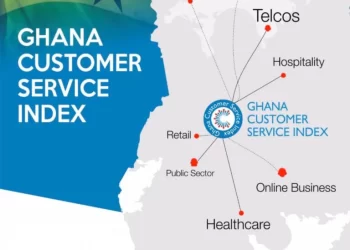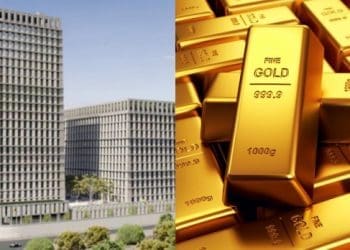Parliament has approved the Energy Sector Levy (Amendment) Bill, 2025, which introduces a GH¢1 levy on every litre of petroleum products sold in Ghana.
The controversial bill was passed late Tuesday, June 3, despite fierce resistance from the Minority Caucus, who staged a dramatic walkout during the voting process.
According to the government, the new levy is projected to generate an additional GH¢5.7 billion in revenue each year.
This revenue is expected to be channelled towards addressing the staggering financial challenges of the country’s energy sector, including ballooning debts and fuel supply constraints for thermal power generation.
Energy sector debt hits $3.1 billion
The Minister for Finance, Dr. Cassiel Ato Forson, who laid the bill under a certificate of urgency, painted a grim picture of the sector’s finances.
He revealed that as of March 2025, the energy sector’s total indebtedness stood at $3.1 billion.
Dr. Forson explained that a minimum of $3.7 billion is required to fully clear this debt, while an additional $1.2 billion will be needed to ensure the continuous supply of fuel to Ghana’s thermal power plants throughout the year.
“The levy is a necessary intervention to avoid further disruptions in electricity supply,” Dr. Forson told Parliament.
He assured lawmakers and the public that the impact of the levy on pump prices would be minimal, claiming that “gains made from the strong performance of the Ghana Cedi” would help absorb the cost, at least in the immediate term.
Minority walks out in protest
Despite government assurances, the Minority Caucus in Parliament strongly opposed the measure, calling it an unjust and inappropriate burden on already struggling Ghanaians.
During the approval process, Minority MPs walked out of the Chamber in protest, arguing that the Majority side lacked the constitutional quorum required to pass such a significant fiscal measure.
The walkout underscored the political tension surrounding the bill. Minority spokespersons questioned both the timing and necessity of the new levy, especially coming on the heels of the recent repeal of the unpopular Electronic Transfer Levy (E-Levy).
“This is not the time to impose yet another cost on the Ghanaian people,” a Minority MP said before leaving the Chamber.
In the final hours leading to the vote, Majority Leader Mahama Ayariga made an emotional appeal to Parliament and the nation, urging Ghanaians to support what he termed a “collective sacrifice” to finally resolve the country’s recurring power crises, known locally as “dumsor.”
“This is not the E-Levy,” Mr. Ayariga said pointedly, in an attempt to distinguish the new charge from the recently scrapped mobile money tax that met strong public resistance. “We are asking for just one cedi—just one cedi per litre of fuel—to secure a stable power future for all of us.”
Deepening political divide over energy reforms
While the government maintains that the strong Ghana Cedi will help cushion consumers from a sudden increase in pump prices, Tuesday’s walkout by the Minority highlights the deepening political divide over how best to resolve Ghana’s long-running energy challenges.












